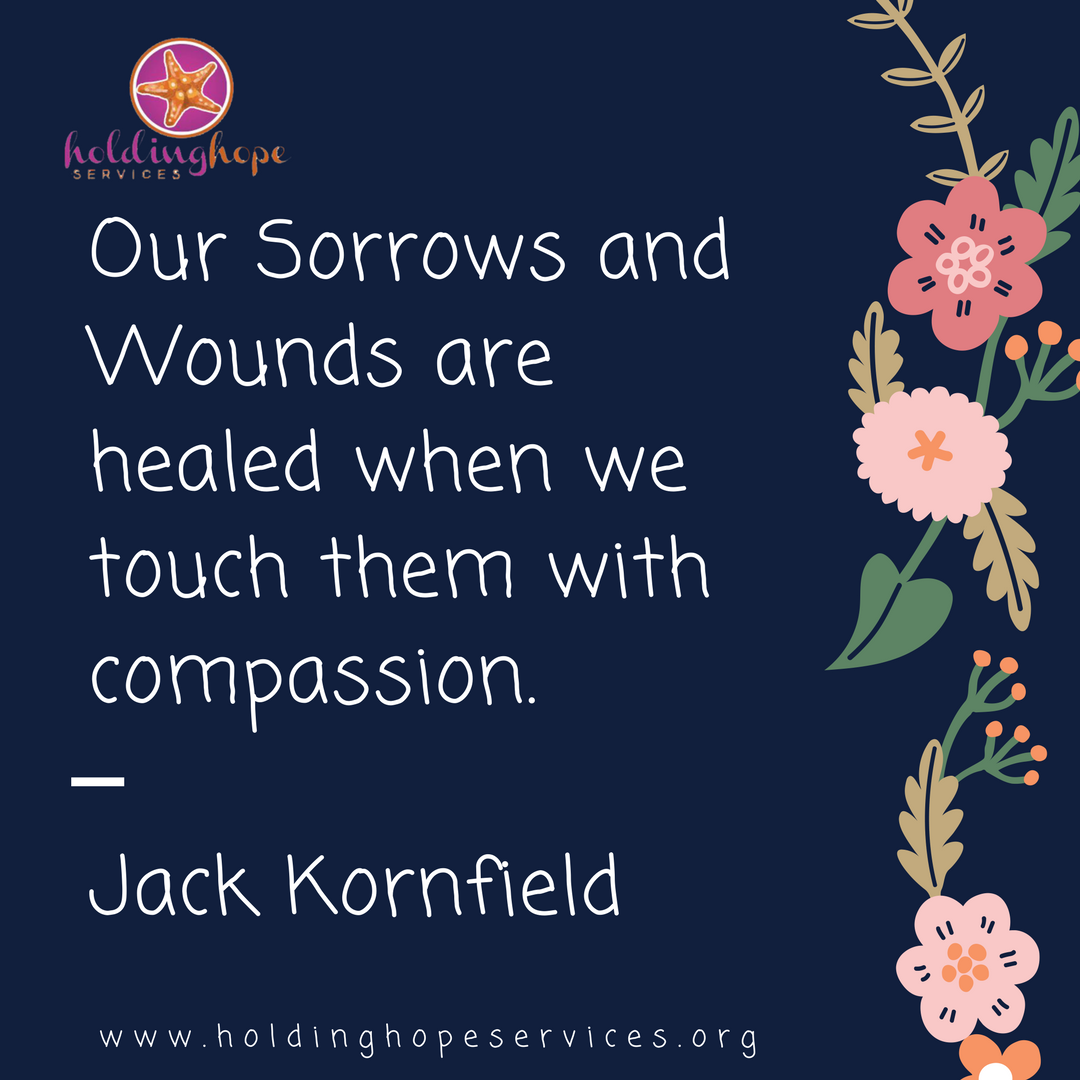I’m fat. I’ve talked about being fat before, but apparently, I have a bit more to say!
One day a switch flipped in my head. I realized that so much of my life was lost talking with people about losing weight and how to look better. Disparaging statements such as “If I lose 30 pounds, I’d be happy with my body.” Or “I hate getting my picture taken. I look so fat” are commonplace. Spending so much time loathing ourselves or looking for ways to lose weight to be happy is so wasteful. How can someone possibly really enjoy their life if so many thoughts are about losing weight?
Medical Professionals – The answer to every ailment a person of larger size may present with is that the person should lose weight. Maybe you don’t realize you are discriminating against people of size. However, if your first inclination is to tell your patient to lose weight - you likely are being discriminatory. If someone of a smaller size comes into your office with a sore throat, you don’t tell them to lose weight. You provide them treatment. Someone of size may not have the same experience. Someone’s weight may affect their physical condition, but that does not make someone unworthy of health care unless they radically change their body to meet some ideal.
Fat shaming and fat stigma lead to poorer mental health and physical ailments. If our first mandate is to do no harm, shaming people about their weight is not living up to that model. Do you have any idea how many people I have seen over the years in my social work and therapy career that will not go to the doctor because the shaming of their weight is just too difficult to bear? People are AFRAID of seeing their medical professionals. How much healthier could individuals be if they felt as if their medical professional respected their bodies and didn’t dismiss them because of their weight.
Research has indicated that weight cycling and dieting have not worked for individuals. Sometimes the health and heart ramifications have caused more physical problems then not dieting would have caused. So why is lose weight the main advice given to people?
The war on obesity has become a war on bodies. Women are told the worst thing that can happen to them is to gain weight. We are socialized to fight against shameful weight gain. Only, the war on weight and our bodies have not led to an increase in weight loss to the ideal. Instead, shaming and blame lead to increased depression, self-loathing, and ironically more weight gain! Large individuals are devalued by society and treated as less than.
Shaming and stigmatizing people because of their weight is a catalyst for people wanting to avoid feeling shamed and stigmatized. Feeling shamed doesn’t mean someone will be motivated to lose weight; this means people don’t go to places – like a gym – where they will be stigmatized. Avoiding activity and isolating due to weight shame and stigma is one way to see that shaming people for their weight is harmful.
You can’t tell what a person eats by looking at them. Also, it turns out someone’s weight is absolutely none of your business.
I wonder what medical and mental health professionals are missing when weight is always the focus. I am lucky and have a phenomenal primary care physician. However, I also have disordered eating, and because I’m fat not even mental health professionals considered I had an eating disorder. What are you missing about those in your world if you are focusing on weight loss as the answer to life’s problems?
If you are uncomfortable with my weight – that is on you. I am not responsible for your comfort. If you are uncomfortable with the look of anyone’s body, your comfort is not their responsibility. Maybe ask yourself why is someone else’s body uncomfortable for you. Are you trying to live up to the ideals of a white, patriarchal, often oppressive society that believes bodies are only beautiful if they are small and thin? Is this not an unattainable goal? No one fits into these ideal women. Even the women you might judge as the perfect ideal are likely wishing parts of their body or physical being could change.
Size does not equal worth. Smaller isn’t better, just like larger isn’t better. We are all worthy and lovable and deserve respect. In my life I’ve walked in a room and been grateful that there is a person who is bigger than me. I have such internalized fat-phobia that I was thankful that someone else would be the outcast. How messed up is that? Yet, I know that many other women have done the exact same thing. When did our bodies become our enemies and become so important, we relish the imperfections of another? How can hating fat people be helpful when this hate causes harm and separation? Why are any of us OK with a society that encourages us to loathe that which is outside the ideal?
When I wrote a post about being fat in the past, one person commented that if I was happy, then I am welcome to live my life fat. I am positive the writer meant that as a supportive comment. However, I’ve realized I don’t need or desire anyone else’s permission to be happy. I don’t need or desire anyone’s rubber stamp on my body. (OK – honestly – I probably still do desire the external validation but I am living with intent to challenge that desire.)
I hope you remember that you also need no one’s permission to have the body you have and love your whole being. I am hopeful that if each of us starts to accept and value ourselves that the tides will begin changing. I hope that those who are able can speak up and challenge oppression in our society. (And those who cannot speak up are gentle with themselves because everyone is not in a position to rock the boat.) I hope that we start to teach our children that they are enough and that their body houses their soul and their body does not have to meet up to an idealized standard.
All the years I spent trying to be something I am not, means I have not been respecting my body. My struggle continues but I am going to keep fighting. I have moments of buying into society’s ideal and wishing I could fit into the mold, but this is such a waste of my time. I am my least authentic self when I battle my body. The best response is for me to understand my body’s cues, work on understanding what my body wants me to know and honor my body despite struggles and because of imperfections. Respecting and loving my physical being is not a battle I plan on losing.
Since I made some statements above some might question – I have included research regarding the idea of fatphobia, weight cycling, fat stigma and health at any size.
Scholarly Articles ( And one facebook page) to check out.
Body Politics with Dr. Maria Paredes. (n.d.). Retrieved from https://www.facebook.com/BodyPoliticsWithDrParedes
Bombak, A. E. (2015). “Everybody watches and everybody comments.” Food, Culture & Society, 18(4), 681–700. https://doi-org.library.capella.edu/10.1080/15528014.2015.1088196
Clare, M. M., Ardron-Hudson, E. A., & Grindell, J. (2015). Fat in School: Applied Interdisciplinarity as a Basis for Consultation in Oppressive Social Context. Journal of Educational & Psychological Consultation, 25(1), 45–65. https://doi-org.library.capella.edu/10.1080/10474412.2014.929952
Fahs, B., & Swank, E. (2017). Exploring stigma of “extreme” weight gain: The terror of fat possible selves in womens responses to hypothetically gaining one hundred pounds. Womens Studies International Forum, 61, 1–8. doi: 10.1016/j.wsif.2016.12.004
Hunger, J. M., Major, B., Blodorn, A., & Miller, C. T. (2015). Weighed down by stigma: How weight-based social identity threat contributes to weight gain and poor health. Social and personality psychology compass, 9(6), 255–268. doi:10.1111/spc3.12172
Montani, J.-P., Schutz, Y., & Dulloo, A. G. (2015). Dieting and weight cycling as risk factors for cardiometabolic diseases: who is really at risk? Obesity Reviews, 16, 7–18. doi: 10.1111/obr.12251










